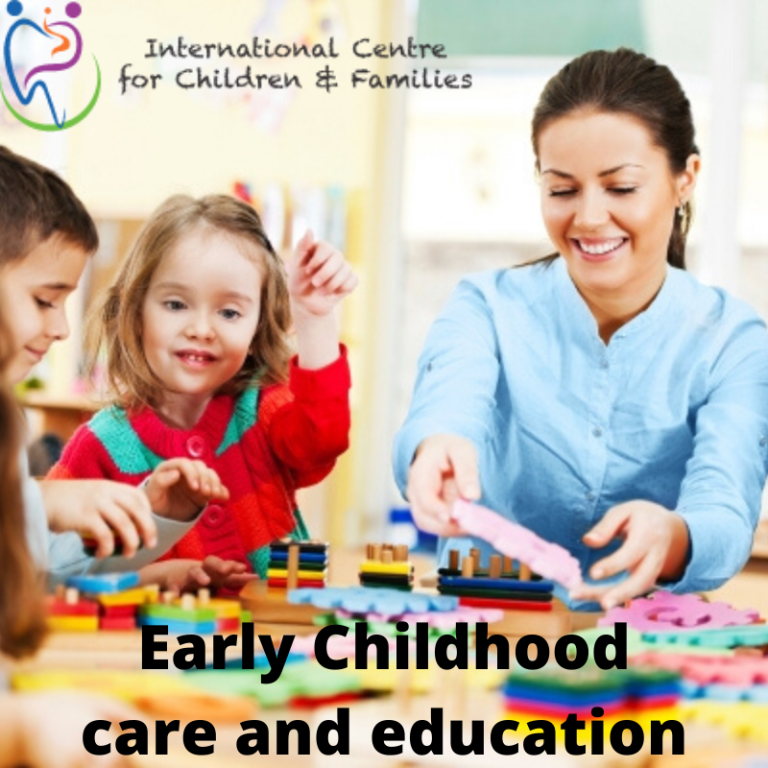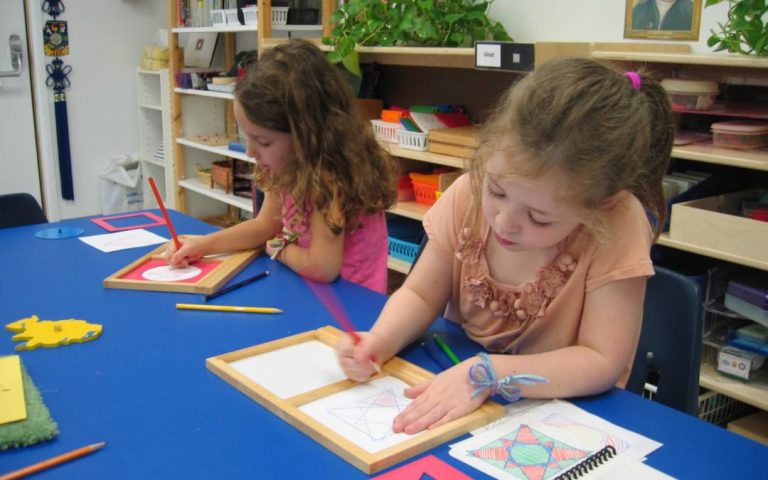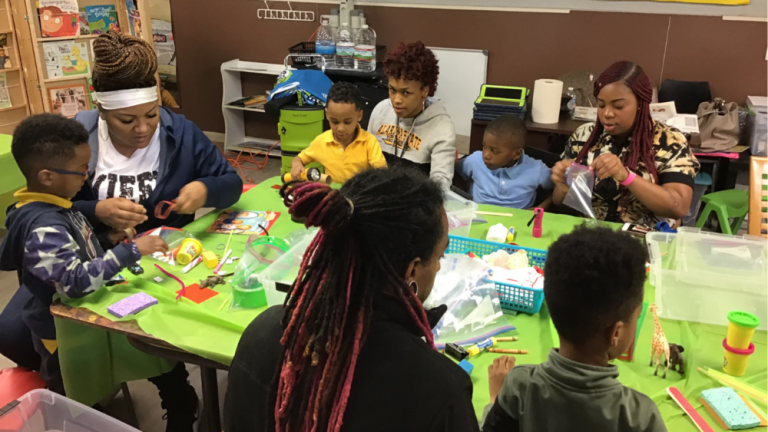What Can You Do With a Early Childhood Education Degree : Unlock Your Potential
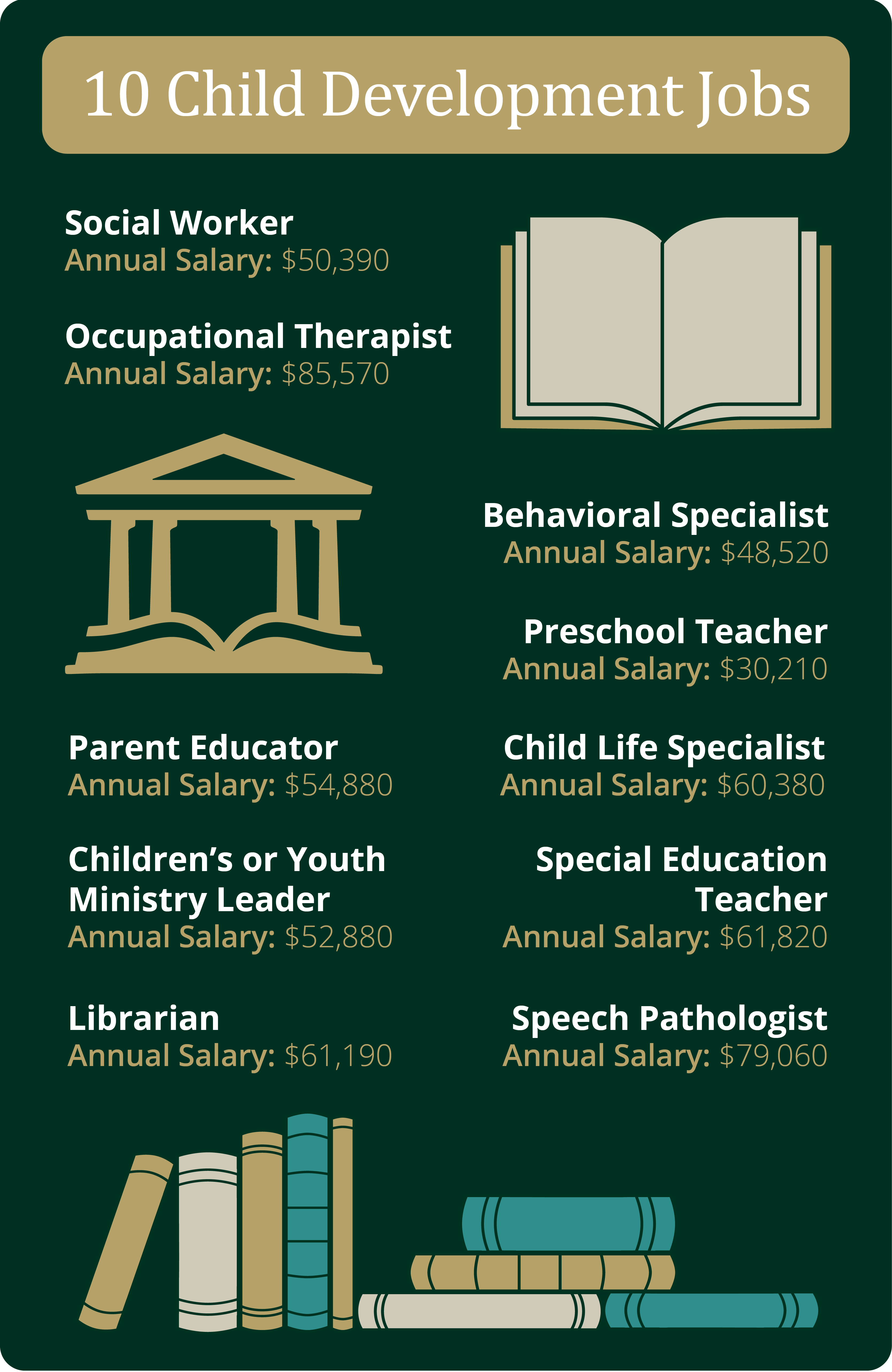
With an Early Childhood Education degree, you can become a preschool teacher or childcare provider. You can also work in daycare centers or as a nanny.
Early Childhood Education degree holders play a crucial role in shaping young minds and providing a strong foundation for children’s future academic success and overall development. Graduates can work in various settings, such as public or private schools, Head Start programs, or as educational consultants.
Additionally, individuals with this degree can pursue roles in program coordination, child advocacy, or early intervention services. The opportunities are diverse and rewarding for those passionate about making a positive impact on young children’s lives.
Career Options
When it comes to pursuing a degree in early childhood education, the career options are diverse and rewarding. Graduates with a degree in early childhood education can explore various paths that involve nurturing and shaping young minds. From teaching to childcare management and curriculum development, the opportunities are vast. Let’s delve into the different career options available with a degree in early childhood education.
Teaching
Teaching is one of the primary career paths for individuals with an early childhood education degree. Graduates can work as preschool or elementary school teachers, imparting foundational knowledge and skills to young learners. They play a crucial role in fostering a love for learning and providing a supportive environment for children to thrive academically and emotionally.
Childcare Management
Childcare management is another avenue for individuals with a degree in early childhood education. They can pursue roles such as daycare center directors or preschool administrators, overseeing daily operations, ensuring a safe and enriching environment, and managing staff. These professionals play a vital role in creating a nurturing setting for children to learn and grow.
Curriculum Development
Curriculum development offers an innovative career path for early childhood education degree holders. They can contribute to creating educational materials, lesson plans, and activities tailored to young children’s developmental needs. Working as curriculum specialists or educational consultants, they play a pivotal role in designing engaging and effective learning experiences for young learners.
Teaching Opportunities
Preschool Teacher
An early childhood education degree opens up a world of opportunities, and one of the most popular career paths is becoming a preschool teacher. Preschool teachers play a crucial role in laying the foundation for a child’s education. They create a nurturing and stimulating environment where young children can develop social, emotional, and cognitive skills through play-based learning activities.
Kindergarten Teacher
With an early childhood education degree, you can pursue a career as a kindergarten teacher. Kindergarten teachers play a vital role in a child’s educational journey by introducing them to formal education. They use interactive and hands-on teaching methods to help children develop essential skills such as reading, writing, and basic math, setting the stage for future academic success.
Elementary School Teacher
Another rewarding career path for individuals with an early childhood education degree is becoming an elementary school teacher. Elementary school teachers work with children from diverse backgrounds and help them build a strong educational foundation across various subjects. They create engaging lesson plans, provide individualized support, and foster a love for learning in their students.
Childcare Management Roles
Childcare management roles are crucial in providing a nurturing and educational environment for young children. Those with an early childhood education degree can pursue various positions in childcare management, each playing a vital role in shaping the early learning experiences of children. Here are some prominent roles within childcare management:
Childcare Center Director
A childcare center director oversees the daily operations of a childcare facility, including staff management, curriculum implementation, and ensuring compliance with regulations. They play a pivotal role in creating a safe and enriching environment for children to learn and grow.
Family Childcare Provider
Family childcare providers offer a home-based setting for early childhood education and care. They create a nurturing environment for children, often providing personalized attention and flexible scheduling to accommodate the needs of working parents.
Program Coordinator
Program coordinators in early childhood education manage the development and implementation of educational programs. They collaborate with educators, parents, and community stakeholders to design comprehensive curricula that promote children’s holistic development.
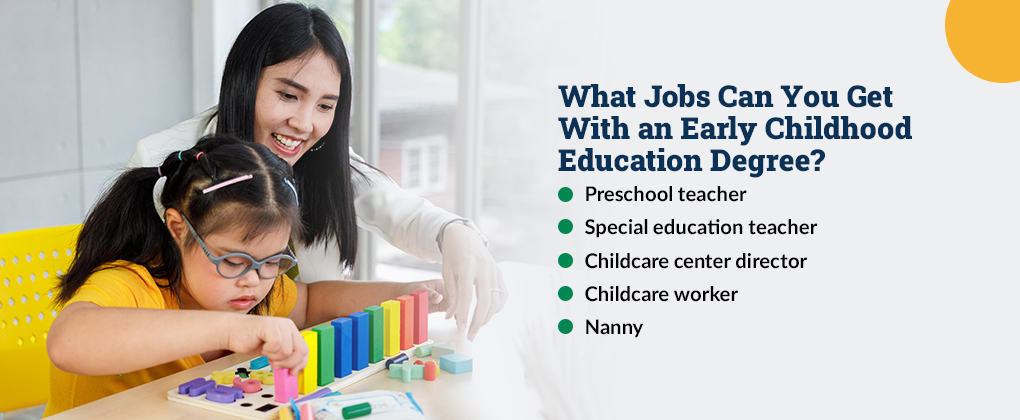
Credit: mwcc.edu
Curriculum Development Positions
Curriculum development positions are crucial in shaping the educational experiences of young learners. Those with an early childhood education degree can explore various career paths within this field. Let’s take a closer look at some of the roles available in curriculum development:
Head Start Program Specialist
As a Head Start Program Specialist, individuals with an early childhood education degree can work directly with Head Start programs to ensure that the curriculum meets the unique developmental needs of young children. This role involves collaborating with educators, families, and community partners to design and implement effective early childhood education programs.
Early Childhood Education Consultant
An Early Childhood Education Consultant leverages their expertise to provide guidance to schools, childcare centers, and educational organizations. They assess existing curricula, offer recommendations for improvement, and provide professional development opportunities for educators. This role allows individuals to have a direct impact on the quality of early childhood education programs.
Education Researcher
With an early childhood education degree, individuals can pursue a career as an Education Researcher, focusing on curriculum development. Researchers in this field conduct studies, analyze data, and contribute to the creation of evidence-based curricular resources. Their work helps to advance the understanding of effective teaching practices for young children.
Additional Benefits
Graduates with an Early Childhood Education degree can explore diverse career paths, such as becoming a preschool teacher, childcare director, or child development specialist. The degree also provides opportunities to work in educational settings, social service agencies, or private childcare centers, offering a fulfilling and rewarding career journey.
An early childhood education degree is a valuable asset that can open doors to various career paths. Apart from the obvious benefits of job security, competitive salaries, and career growth opportunities, there are additional benefits that come with this degree that are worth exploring. Here are some of the additional benefits of an early childhood education degree:Flexibility
One of the significant benefits of an early childhood education degree is the flexibility it offers. Graduates can work in various settings, including public and private schools, daycare centers, and community centers. They can also choose to work as a teacher, administrator, consultant, or researcher. This flexibility means that graduates can choose a career that suits their interests and lifestyle.Job Satisfaction
Working with young children can be challenging, but it can also be incredibly rewarding. Early childhood educators have the opportunity to make a positive impact on children’s lives every day. They play a crucial role in shaping children’s development and preparing them for future success. Seeing the progress and growth of the children they work with can bring a sense of fulfillment and job satisfaction that is hard to find in other careers.Making A Difference In Children’s Lives
Perhaps the most significant benefit of an early childhood education degree is the opportunity to make a difference in children’s lives. Early childhood educators have a unique opportunity to shape children’s development during their most formative years. They can help children develop social skills, emotional intelligence, cognitive abilities, and a love for learning. By providing a safe and nurturing environment, early childhood educators can set children on a path to success that will last a lifetime. In conclusion, an early childhood education degree offers numerous benefits beyond just career opportunities. Graduates can enjoy flexibility, job satisfaction, and the chance to make a positive difference in children’s lives. It’s a degree that can provide a fulfilling and rewarding career while also making a significant impact on society.
Credit: www.baker.edu
Salary Expectations
Salary Expectations:
Average Salaries In The Field
An Early Childhood Education degree can lead to rewarding careers with competitive salaries.
Factors Affecting Salary
- Experience level
- Location
- Employer type
Potential For Career Advancement
With further education and certifications, professionals in this field can advance their careers.
Skills And Qualities Required
An Early Childhood Education Degree equips you with essential skills and qualities to excel in roles such as preschool teacher, childcare director, or early intervention specialist. With a strong foundation in child development, curriculum planning, and classroom management, you can make a significant impact on young learners’ lives.
Patience And Empathy
Early childhood educators need patience to handle young learners effectively.Excellent Communication Skills
Clear communication is crucial in conveying ideas to children and their families.Creativity And Flexibility
Creative approaches and adaptability are key in engaging young minds effectively.Education And Training Requirements
Education and training requirements for a career in early childhood education are essential to ensure that educators are well-prepared to meet the needs of young children. Whether pursuing a bachelor’s degree, master’s degree, or certification, individuals in this field must meet specific educational standards to be successful in their careers.
Bachelor’s Degree In Early Childhood Education
Obtaining a Bachelor’s Degree in Early Childhood Education is the primary step towards pursuing a career in this field. This degree program typically includes coursework in child development, teaching methods, and early childhood curriculum design. It also involves practical training through internships or student teaching experiences in preschools or childcare centers.
Master’s Degree In Early Childhood Education
A Master’s Degree in Early Childhood Education provides educators with advanced knowledge and skills in the field. This program delves deeper into areas such as child psychology, assessment and evaluation, and leadership in early childhood education. Graduates of this program are better equipped to take on leadership roles in educational settings.
Certification And Licensing
Upon completing a degree program, individuals may need to obtain certification or licensing to work as early childhood educators. Requirements vary by state, but typically involve passing a competency exam and completing continuing education courses to maintain licensure. Certification demonstrates that educators have met the necessary standards to provide quality care and education to young children.

Credit: www.onlinecollegeplan.com
Frequently Asked Questions
What Is The Highest Paying Job In Early Childhood Education?
The highest paying job in early childhood education is a preschool or childcare center director. These professionals oversee daily operations and staff, ensuring high-quality care and education. They typically hold a bachelor’s or master’s degree and have extensive experience in the field.
Is An Early Childhood Education Degree Worth It?
An early childhood education degree is worth it for aspiring educators seeking rewarding careers with children.
What Is The Average Pay Range In Indiana For Early Childhood Educators?
The average pay range for early childhood educators in Indiana varies from $22,000 to $45,000 per year.
What Does Ece Stand For In College?
ECE stands for Electrical and Computer Engineering in college.
Conclusion
With an early childhood education degree, you can make a profound impact on young minds and shape their future. The opportunities are endless, from teaching in a classroom to working in educational administration or curriculum development. Your passion for nurturing and educating young children can lead to a fulfilling and rewarding career in this field.
Lorem Ipsum is simply dummy text of the printing and typesetting industry. Lorem Ipsum has been the industry’s standard dummy text ever since the 1500s, when an unknown printer took a galley of type and scrambled it to make a type specimen book.

